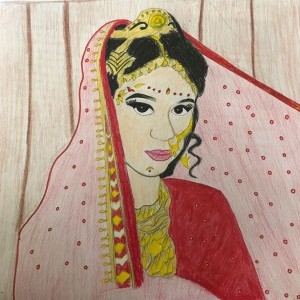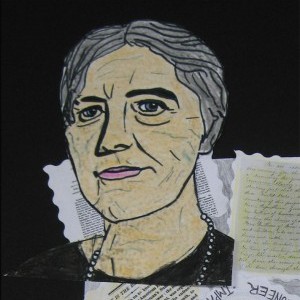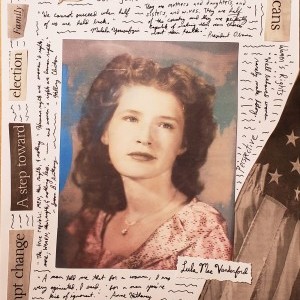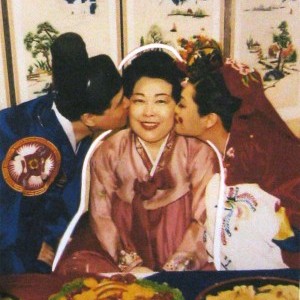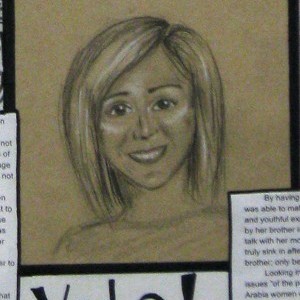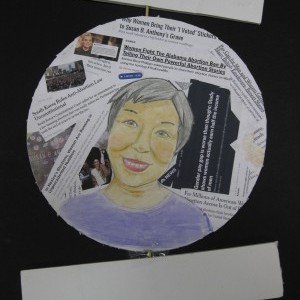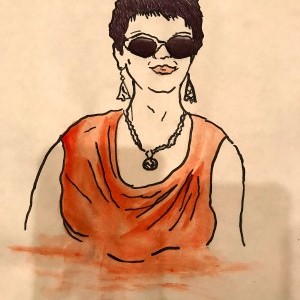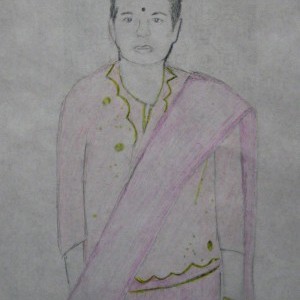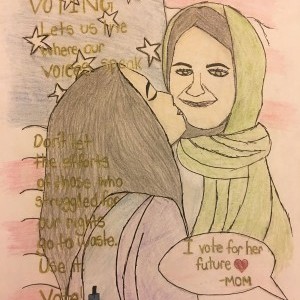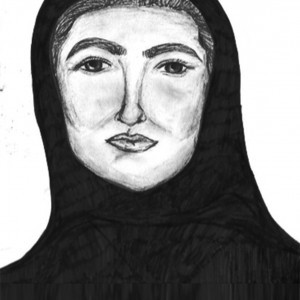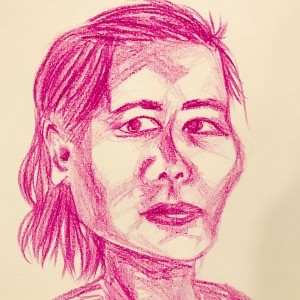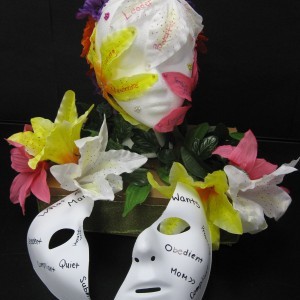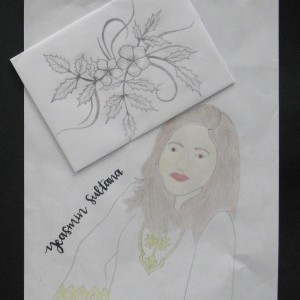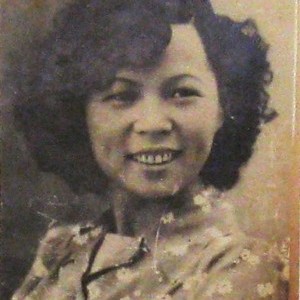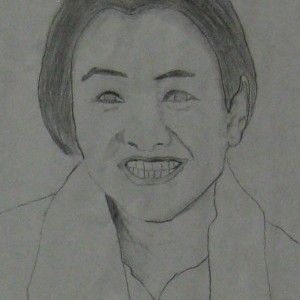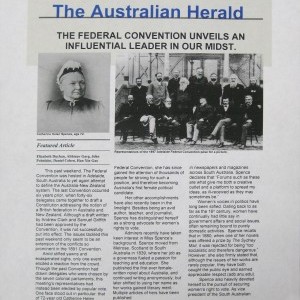Kristina Chang, Sarah Chowdhury, Bethany Leung, Letian Fang, Cathy Choo, Kelly Chan, Emily Tan, Adamary Felipe & Kenney Son
Townsend Harris High School | Flushing, NY | 11th Grade
Inspirational Family Member
My Grandma
My grandma was born in Guangzhou, China, somewhere around the start of World War II. (A year isn’t provided because official records are incorrect.) Ever since she was born, her family was on the run from something or another. Her family was already running west by the time she was born, trying to escape Imperial Japan. The Japanese had almost reached her family when the U.S. dropped the atomic bombs, and Japan surrendered. By the time my grandma returned home, she was seven years old.
She recounted for me her annual experiences with National Day, the date commemorating the birth of the People’s Republic of China. Every year, they’d wake up at four in the morning to go to school, where they would line up and wait for the ceremony to begin. They did that in all the big cities, she told me, even in Guangdong.
When the Cultural Revolution happened and Mao Zedong came to power, my grandma had just about graduated from high school. She described to me how the Red Guard, Mao’s student militant movement, broke into her family’s house and tore down the pictures and paintings decorating the wall. She told me how she had a piano just like that, and she pointed to the little brown piano sitting in our hallway, and how they smashed it to pieces because it was “too western”. Soon after that, she left for Hong Kong with one of her older sisters. At the time, Hong Kong was still British territory, meaning they were safe from Mao and his Red Guards. She told me how she slept in a cramped three room apartment with eleven to twelve other people, and how she went to nursing school so she could have a nicer place to stay and be able to send back food and money to her parents and eight other siblings still in China, starving because of Mao’s reign. Eventually, because she had a valid passport, she was able to properly move to New York, and continue sending money back home.
My grandma told me that with the rise of the communist government, nobody had the right to vote, let alone women. The concept of voting was completely foreign to the government at that time and today, all government officials are appointed rather than elected. She herself saw the rise of the communist government and luckily, she managed to escape its most brutal effects.
When I asked her if she was happy to be here, in America, she of course said yes. “It’s a free country,” she explained to me. She’s able to vote, earn her own money, and not have ration restrictions on her meals. “In Guangdong, they could only buy meat once a week back then,” she told me. “When I got my pocket money from the nursing school, my sister and I would go out and buy prepackaged bottles of oil and noodles, all weighing two pounds each, and send them back home.” To her, the ability for women, as well as all other citizens, to participate in voting means food on the table. It means a functioning economy, where her family doesn’t starve and she doesn’t have to send two-pound parcels back home. It means she, along with the numerous other women and citizens in the country, can vote to keep their family safe and happy.
Historical Figure I Admire
Emily Wilding Davison
Emily Wilding Davison was born on October 11, 1872 in southeast London. She went to Kingston School in London and later enrolled in Royal Holloway College. Sadly, her education came to a halt when her father died and her mother could no longer pay for her education. Thus, she became a teacher in order to earn enough money to continue her education in St. Hugh’s College.
In Davison’s lifetime, she lived in an environment that was avidly advocating for women’s suffrage. Before her time, the Reform Act of 1832 passed, which gave voting rights to more men. Before this, only men with a certain amount of wealth could vote. When this passed, many people advocated to allow women property owners and taxpayers to be allowed to vote, but this was opposed by many. In the Reform Act of 1867, voting privileges were again expanded to more men, which again caused women suffragettes to be enraged. Their cause was further motivated by the irony that London was ruled by Queen Victoria, a woman, since 1837. Many people, especially men and officials, didn’t want women to vote because they thought women couldn’t properly evaluate political situations and were too emotional.
This environment led to the development of many suffragette groups, such as the Women’s Social and Political Union (WSPU), which was created by Emmeline Pankhurst. Davison joined this group in 1906. During this time, the group was gaining prominence for its civil disobedience and militant actions. Eventually, in 1909, Davison quit her job as a school teacher in order to be a full- time suffragette.
Often times, Davison led many violent actions in WSPU, which often caused her to land in jail. She was incarcerated on many occasions for short periods of time, such as one month long. In prison, she often went on hunger strikes, which was an effective form of political protest while incarcerated. One of the prisons Davison ended up in was the Holloway prison, which approved force feeding in order to counteract hunger strikes. This included physical restraints and causing extreme pain through the use of mouth gags and rubber tubings, which were forced into the esophagus. This often led the victims to throw up, and the process was then restarted. This process was exposed and the public condemned it, allowing the suffragettes to gain more momentum in their movement. Sadly, Davison was a victim of this crime.
In 1911, Davison went on an arson campaign, which caused her to be incarcerated again. There she went on a hunger strike again, and actually tried to kill herself. She did so because she thought only death and human sacrifice could unite and show people the inequalities and injustice women face. Davison sadly died on June 8, 1913. On June 4th, she went to the elite Epsom Derby in Surrey, England where many royal officials and elites where there with their horses. She stepped out onto the racetrack and tried to grab the bridle of Anmer, the horse that belonged to King George V. By attempting to do so, she sustained several injuries and was seriously damaged. She never regained consciousness and died four days later because of her injuries. Some suggest that Davison was trying to further the WCPU’s cause by attempting to attach the WCPU’s logo onto the horse and get that captured on camera.
Emily Davison was not simply a leader of her time, but her actions have had a lasting impact on today’s society. Her actions showed the urgency of women’s suffrage, and her willingness to die for this cause proved her dedication to this issue. Her sacrifice not only motivated other women to join this movement, but it also showed how some women felt about this kind of society: they rather have death than live in an unequal world. Additionally, her time in prison and her experiences there also rallied more support for the suffrage movement, and her hunger strikes continued actions of civil disobedience even in limited situations. Her actions advanced issues in this field since it showed to the public that women were willing to be violent in order to prove their point. This went against the passivity that is usually associated with traditional women. Her actions contributed to the women’s suffrage in 1918 in London, which was followed by the 19th Amendment passed in the United States in 1919. Her actions not only stirred progress in London, but also globally.
What the Project Means to Me
A family portrait.
Explore the Archive
More From This Class
Click on the thumbnails below to view each student's work.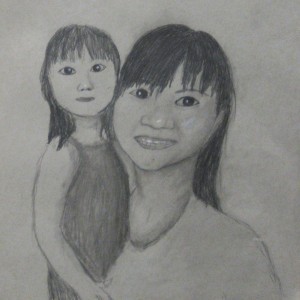
Vivian Chen, Josephine Chen, Ivan Chan, Zafirah Rahman, Neeharika Reddy, Daniel Shi, Daniel Shi, Jacqueline Cho & Osiris Guerrero
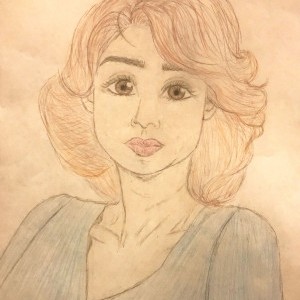
Jennifer Moran, Adebola Ademola, Julia Hong, Vicki Kanellopoulos, Inga Kulma, Maimunah Virk, Deborah Molina & Kailey Van
Deadline Extended
There's still time to join Women Leading the Way.
Become a part of our storytelling archive. Enroll your class today.
Join the Project

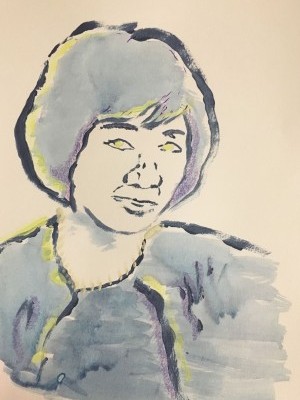
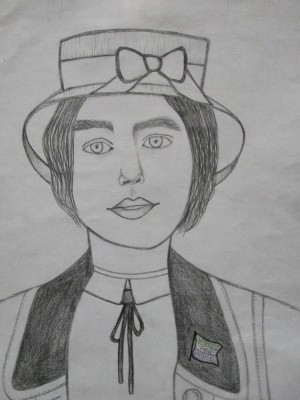
-Family-archive.jpg)
